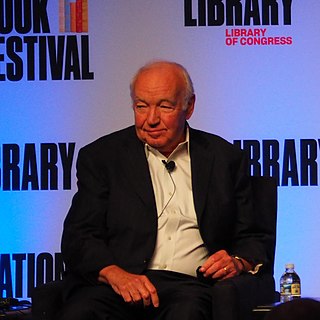Ein Zitat von Tom Wolfe
Mein Vater war Herausgeber einer Agrarzeitschrift namens „The Southern Planter“. Er sah sich selbst nicht als Schriftsteller. Er war Wissenschaftler, Agronom, aber ich hielt ihn für einen Schriftsteller, weil ich ihn an seinem Schreibtisch arbeiten sah. Ich ging einfach davon aus, dass ich das tun würde, dass ich Schriftsteller werden würde.
Verwandte Zitate
Denn die seriöse, mittelmäßige Schriftstellerkonvention lässt ihn wie viele andere Leute klingen; Für den populären Schriftsteller gibt es ihm eine Formel, die er nutzen kann; Für den ernsthaft guten Schriftsteller löst es seine Erfahrungen oder Emotionen von sich selbst und integriert sie in die Literatur, wo sie hingehören.
Ich sage „aus Prinzip“ [in Bezug auf „lesbische Schriftstellerin“], denn wann immer Sie eines Ihrer Minderheitenetiketten erhalten, wie „irische Schriftstellerin“, „kanadische Schriftstellerin“, „Schriftstellerin“, „lesbische Schriftstellerin“ – irgendeine dieser Kategorien – Du zuckst immer leicht zusammen, weil du Angst hast, dass die Leute denken, das bedeute, dass du nur über Kanada oder Irland schreiben wirst.
Das Lektorat sollte, insbesondere bei alten Autoren, eher eine beratende als eine kollaborative Aufgabe sein. Die Tendenz des Autors und Herausgebers zur Zusammenarbeit ist natürlich, aber er sollte sich fragen: „Wie kann ich diesem Autor helfen, es besser in seinem eigenen Stil zu sagen?“ und vermeiden Sie „Wie kann ich ihm zeigen, wie ich es schreiben würde, wenn es mein Stück wäre?“
Der Autor, von dem ich vielleicht am meisten gelesen habe, ist Haruki Murakami, der japanische Schriftsteller, aber ich würde nicht unbedingt sagen, dass er einer meiner Lieblingsautoren ist. Ich lese ihn, weil ich sein Werk so faszinierend finde, aber ich habe nicht unbedingt das Gefühl, dass ich diesem Autor bis ans Ende der Welt folgen würde.
Mein erbärmlicher Hass auf Schauspieler und die Schauspielwelt. Ich habe als Schauspieler studiert und nach der Hälfte meines Studiums auf das Schreiben von Theaterstücken und die Regie umgestellt. Dann arbeitete ich ein paar Jahre im Verlagswesen und arbeitete als freiberuflicher Journalist für The Village Voice und das Musician Magazine. Ich dachte, ich würde ein Leben als Schriftstellerin führen, aber dann wurde mir klar, dass mir die Schauspielerei fehlte, also fing ich an, Comedy zu machen. Es war eine schöne Kombination von Dingen, in denen ich einigermaßen gut war. Ich war ein ziemlich guter Autor und ein anständiger Schauspieler, aber die Schauspielerei gefiel mir nicht wirklich und ich hatte nicht die Disziplin, Schriftsteller zu werden.
Benommen verlässt der Schriftsteller sein Arbeitszimmer. Er möchte etwas trinken. Er braucht es. Es ist eine Tatsache, dass fast jeder Romanautor auf der Welt mehr Whisky trinkt, als ihm gut tut. Er tut es, um sich selbst Glauben, Hoffnung und Mut zu geben. Es ist ein Narr, Schriftsteller zu werden. Seine einzige Entschädigung ist absolute Freiheit. Er hat keinen Meister außer seiner eigenen Seele, und ich bin mir sicher, dass er das auch tut.
Der Schriftsteller, der buchstäblich süchtig ist, der Schriftsteller, der nicht anders kann, der Schriftsteller, der schreiben MUSS, kann nie etwas anderes als ein Amateur sein, denn die Branche verlangt vom Profi, dass er das Schreiben nicht nur für ein oder zwei Tage auf Eis legt , oder eine Woche, aber für Jahre.
Der analytische Autor beobachtet den Leser so, wie er ist; Dementsprechend stellt er seine Berechnungen an und stellt seine Maschine so ein, dass sie die entsprechende Wirkung auf ihn ausübt. Der synthetische Autor konstruiert und erschafft seinen eigenen Leser; er stellt sich ihn nicht ruhend und tot vor, sondern lebendig und auf ihn zugehend. Er lässt das, was er erfunden hat, vor den Augen des Lesers nach und nach Gestalt annehmen, oder er verleitet ihn dazu, es selbst zu erfinden. Er will keine besondere Wirkung auf ihn ausüben, sondern geht vielmehr eine feierliche Beziehung innerster Symphilosophie oder Sympoesie ein.
































